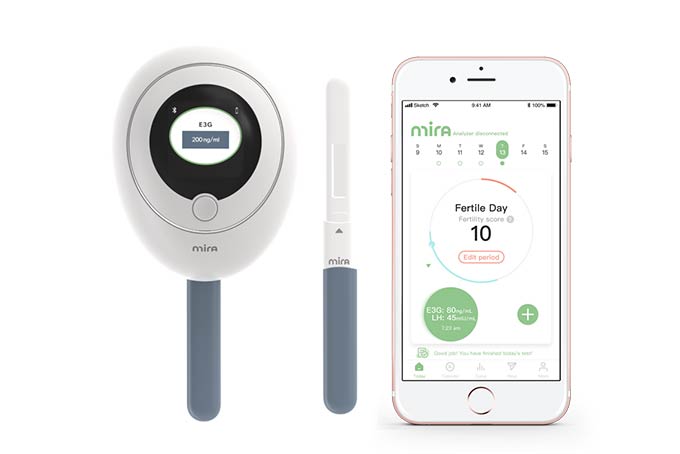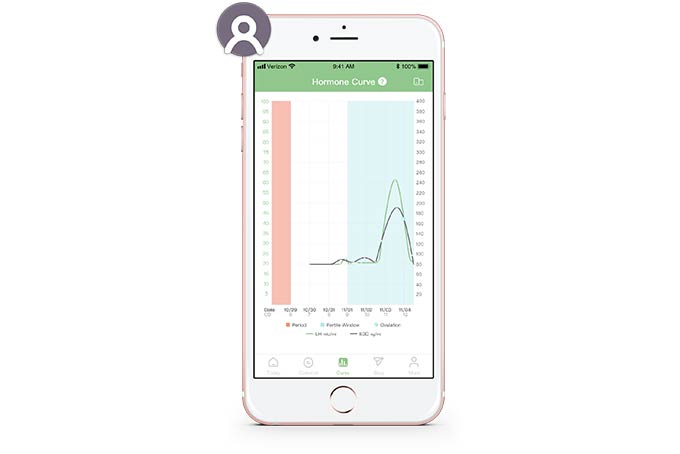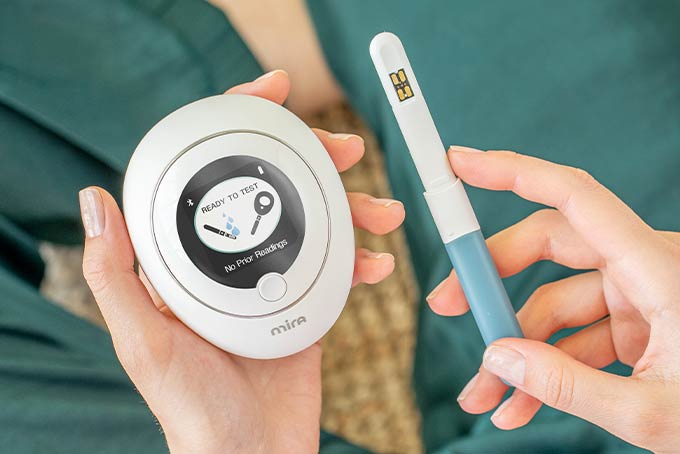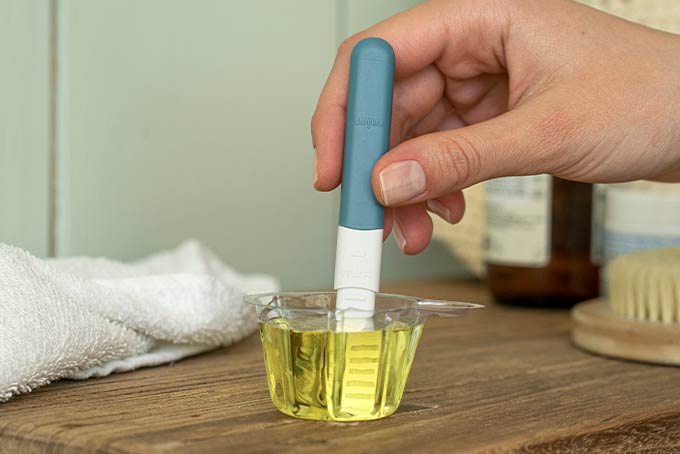Not everyone dreams of motherhood, but for those who do, the path to pregnancy can be a little more complicated than a mere romp in the hay. While Singapore’s birth rate fell to a historic low in 2020 with many altering the plans of parenthood around COVID, figures from Singapore’s Department of Statistics reveal that fertility rates have become the highest among women aged 30 to 34 years.
Nobody understands delayed pregnancy and the complexities of falling pregnant on your own schedule than Sylvia Kang, co-founder and CEO of fertility tracking device, Mira. As a new mother herself, the 36-year-old San Francisco-based founder of Chinese heritage shares her take on modern fertility and what it means to become pregnant while actively hitting those career milestones.
Postponed motherhood—tell us about your journey.
I’m an example of postponed motherhood. I know many friends who are on a similar journey.
“Education and career were our primary focus so we didn’t have the bandwidth to start a family in our 20s—which is very common now.”
For some people, getting pregnant after 35 will become harder and may have more complications. The truth is, fertility does not decline in one day. Keeping a healthy lifestyle and monitoring your fertility health are good things to do to get prepared.
I think egg freezing and IVF are great options for people who need to delay motherhood. There are still many challenges to face with these procedures, but they give people options and choices. Also, to increase the success rate of these ARTs, knowing and monitoring one’s fertility health early-on and finding the best timing is very important.

Between career progression, COVID, ageing parents etc, is there ever a good time to have a baby?
It depends on the case. It is important to go through this when you feel you are ready. There are always concerns and challenges when considering having a baby—at times, you feel that you are never ready. But everything has pros and cons. For example, COVID-19 has created a tough time for the world, but working from home allows flexibility. It is all about prioritising the different timings in our lives and how we find ways to work around it.

As Mira’s founder, did you feel more control over your fertility journey?
Yes. Mira helped me immensely throughout my TTC and pregnancy. When I was trying to conceive, I tracked my cycles using Mira’s LH and E3G test wands, so I knew my patterns very well. Thanks to this, we saved a lot of time and were able to conceive right away.
After conceiving, I didn’t see my OB until the eight week. Throughout these eight weeks, I felt confused and stressed. Thankfully, I tested my hCG levels using Mira’s hCG wands, which are currently being beta tested and will be available by early 2022. I got to see an accurate and clear increasing trend, which eased a lot of the tension I was feeling. During postpartum, my hormone drop was very significant and I had symptoms such as night sweats, fatigue, and anxiety. I tested my PdG, E3G, and LH levels to understand that this was a normal hormone drop and fortunately didn’t indicate other complications. Overall, I had a pristine picture of what was going on in my body. I was able to link symptoms with hormone changes and feel relieved when I needed it. The pregnancy journey in itself can be complicated and unpredictable, so the clarity Mira gave me was super helpful.
“Pregnancy is very different for everyone, so I found myself Googling symptoms almost every couple days during my entire 40 weeks until postpartum—this created unnecessary anxieties.”
Femtech companies can help with filling many gaps, for example, hormone tracking to know early foetal growth status, hormone tracking to understand various symptoms, personalised consultations or analysis about what foods to eat, how much and what types of exercise are best for each person, and emotional support during and after pregnancy.
Pregnancy hormones have real outcomes on fertility and conception. What did you discover about your hormones or your body on this journey to motherhood?
Before trying to conceive, I’ve always tracked my cycles using Mira—so I’m very familiar with my cycle patterns. I discovered my cycle is longer than average, so I ovulate later in my cycle. Because I tracked my LH and E3G surges, I knew when my fertile window starts and ends, and when I ovulate. I also tracked my PdG and hCG levels with Mira during my early pregnancy.

The most common concerns that women encounter when trying to conceive
Surprisingly, there are many concerns we face when TTC and experience pregnancy. Struggling to conceive taking a long time to conceive is the most common issue Mira users face. We usually don’t pay too much attention to our fertility health until we think about TTC. Then, we find it to be a very exhausting journey full of uncertainties. Some people don’t know why they can’t conceive. Many Mira users have been diagnosed with ‘unexplained infertility’ which means doctors can’t pinpoint the issue, so not much help is provided. Other users have found they have irregular cycles, hormone imbalances (such as PCOS), had previous miscarriages, etc. All this creates confusion and a sense of lack of control, leading to stress.. Throughout every cycle, they encounter a negative pregnancy test and lack a clear direction in terms of next steps. It’s very emotionally draining and stressful.

How would miscarriage factor into femtech products such as Mira?
Miscarriage is more common than we think. 15 per cent of pregnancies end up in a miscarriage. It is a very concerning and stressful experience, especially for people who tried hard to TTC, or really want to have a baby. Emotionally, it is a roller coaster experience, combined with the feeling of the loss of your loved ones. Many even blame themselves for having a miscarriage.
In our regular medical practice in the US, we don’t see the OB until we reach 8 weeks in our pregnancy. However, during these 8 weeks, many women experience symptoms and don’t know what they mean. Some don’t feel they are pregnant anymore. Some experience bleeding, exhaustion, belly pain, etc—all symptoms resembling that of a miscarriage. It’s very worrisome and creates anxiety. We have very little femtech products or medical products to address this part of the journey for now.
With PdG and hCG testing, women can see if their early pregnancy hormones increase according to the normal range—which is the standard method used by doctors to measure foetal growth and follow signs of miscarriage. This information gives our user more clarity, creates less stress and guesswork, and helps doctors diagnose problems early.
View this post on Instagram
What advice would you give to someone who is either struggling with fertility or TTC?
Try to not to over-stress and seek help when needed. The fertility and pregnancy journey is never as easy as we may have thought. Don’t blame or push yourself too much. Seek help from doctors to identify the problem as clearly as possible and trust that your body will do the rest of the work. Ask for mental health support from family, your community, or psychological therapists when needed.
Best advice for new mothers such as yourself.
Allow things to be imperfect for a while. Having a newborn changes one’s lifestyle. There are more things to take care of everyday on top of the daily work and life we used to have. This can be hard to manage and stressful. Take good care of yourself and prioritise your body’s recovery. Everything else will gradually get better and become more organised. Things might be imperfect for a while but it is ok for them to be this way.
How do you keep your mental health afloat as a new mum?
It is difficult to be a new mum, especially with the lifestyle change and drop of hormones. Many women get the ‘baby blues’ postpartum. I tried to do things that I enjoy and focused on recovering my health postpartum, which was very helpful. Recovering and getting enough sleep can significantly reduce the chance of postpartum depression. It gave me the confidence and strength to believe that I will be back to my regular life soon. Doing things that I enjoy reminded me of who I am, so I believe I am still the strong and same person I was before giving birth. Everyone has different strategies to manage their mental health.
What’s the ‘next big thing’ in fertility and family planning tech?
I see it in connecting doctors with patients. There are many important procedures in fertility, such as fertility treatments, IVFs, egg freezings, etc that are handled by healthcare professionals. However, many decisions are done short-term and with a few tests. There is a lack of overall understanding of the patients’ health and long-term tracking. Doctors’ protocols could be more personalised and accurate if technology allows for it. This will increase the success rates of these treatments, save costs, and improve patients’ experiences.
You’re Asian but live in the West, have you married any perspectives or traditional Chinese medical (TCM) practices in your journey to motherhood?
I tried to listen to my body. There are many guides and recommendations telling you what you need to do to recover the best way. I found them to be helpful but my body tells me what it really needs. Everyone is different. We know what works the best for us mentally and physically. I tried to listen to what my body told me throughout my recovery. Sometimes what your body tells you is not what you find online or get advised by others.





